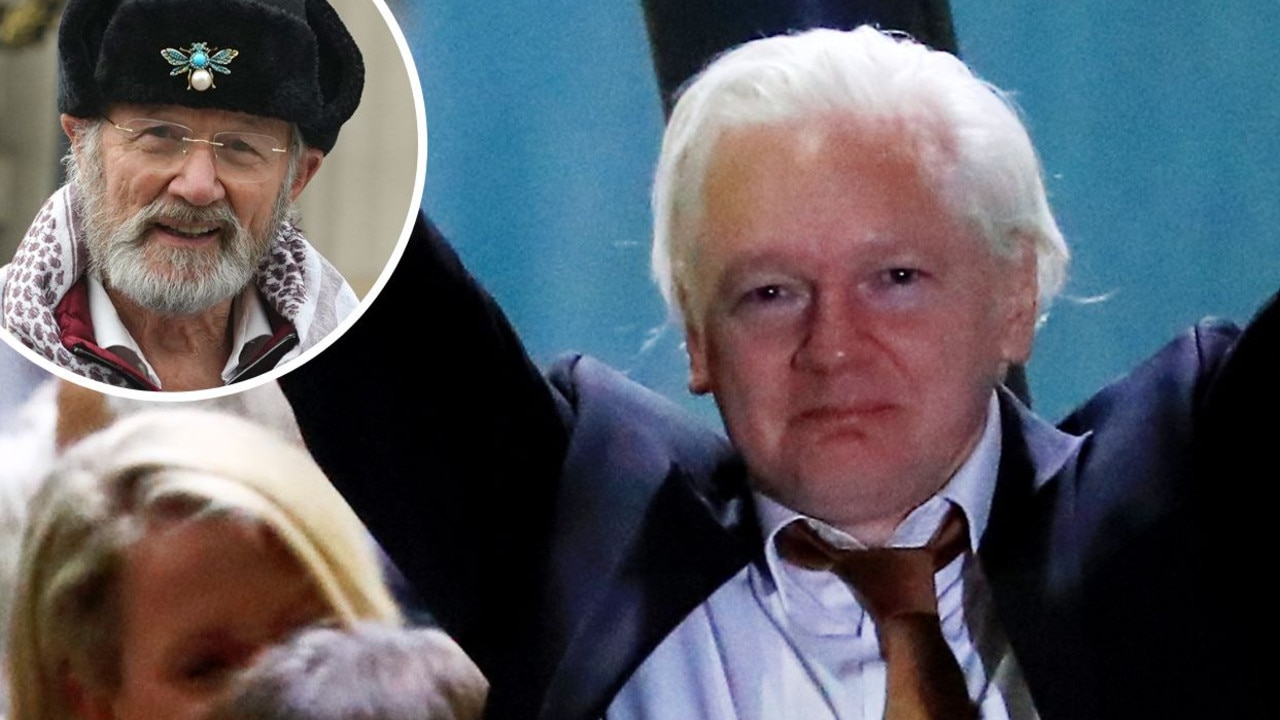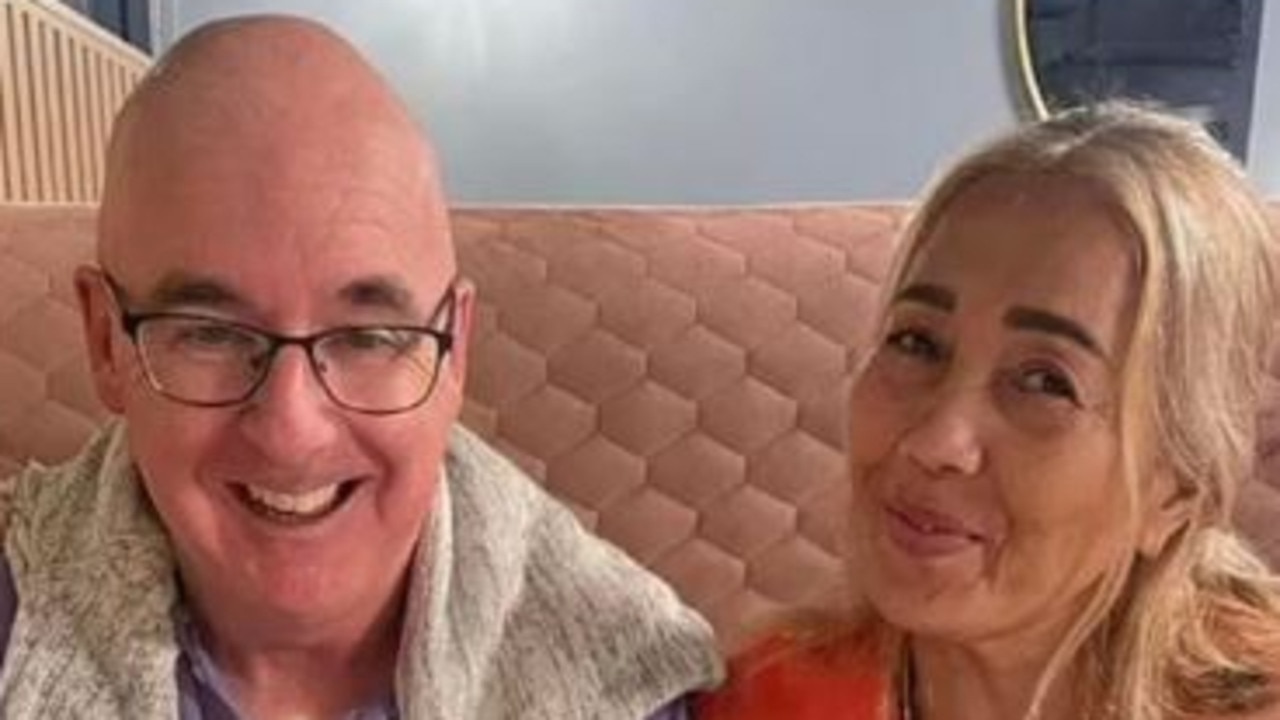What would they have been like today? Remembering Hannah Clarke’s children
Two years since Australia was rocked by some of the most horrific domestic violence murders in its history, Hannah Clarke’s parents have shared new intimate photographs of their grandchildren and details of the weeks before they were killed. SEE THE PICTURES
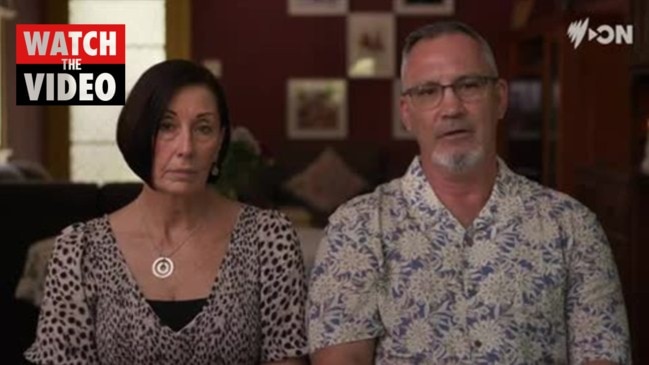
Crime in Focus
Don't miss out on the headlines from Crime in Focus. Followed categories will be added to My News.
They called her Gracey Girl, or Little Middle... but mostly just Anah.
At four years of age, Laianah Grace was their cheeky monkey, their little peacemaker. When her father was angry, she’d climb into his lap and cuddle him, calm him down.
When Sue and Lloyd Clarke remember their grandchildren, on the second anniversary of their murders, it’s with laughter and sadness, with the pain of having to wonder: What would they have been like today?
“She was my girl,” Sue said of Hannah Clarke’s middle child.

“She was so funny … we’d go shopping together and I’d say, ‘don’t tell Pa – keep it a secret that we’ve spent his money’. Spending Pa’s money – she loved it. But then she’d greet him at the door when we’d get home and say ‘Pa! We spent all your money!’
“She would con me into carrying her everywhere. And Hannah would say, ‘For God’s sake Mum, put her down! She can walk! She’s four!’ ”
It’s been two years since Australia was rocked by one of the most horrific domestic violence murders the country has ever seen – a crime so devastating it changed the conversation around abusive relationships and led to plans to criminalise coercive control.
But among all the debate and politics, is the enormous loss of a brave mother and her three tiny children.
Today, Sue and Lloyd Clarke are passionate campaigners. But two years ago, they were Pa and Nee Nee – doting suburban grandparents determined to spoil those children as much as they could.
“Carry me Nee Nee!” Laianah would say. Sue had asked how much longer she’d need to be carried.
“Until I’m seven,” Laianah had said.
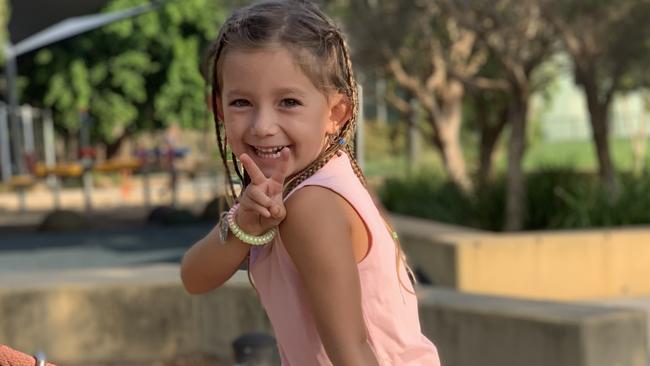
“I have no idea what the significance of seven was,” Sue recalled.
“But she would actually be seven next month. So we were thinking … I wonder if it would have stopped?”
Hannah Clarke was 19 when she met her husband. He was 11 years her senior and had been married once before.
Sue had always liked Hannah’s boyfriends, but there was something about the man she’d married that hadn’t sat right with her.
“Do you know, when he married her, on their wedding (day), I actually said to him, ‘you hurt her, and I will hunt you down’. And he started laughing. If only I knew,” Sue said.
Hannah was bright and bubbly. She thought she could sing – but couldn’t. She got all the words wrong. April Sun in Cuba was “egg roll summer in Cuba”. Mustang Sally was “must hang Sally”. She’d made them all laugh. He’d stolen that laughter.
Hannah confided in Sue about the troubles in her relationship but to anyone else, she hid it away.
Her husband was controlling, manipulative, narcissistic and brutal. He controlled what she did, what she wore, who she spoke to. He belittled and abused her.
And when she finally found the courage to leave, he killed them all – ambushing Hannah as she left for the morning school run. He’d jumped into her car, poured petrol over them all and set them on fire.
Sue and Lloyd cherish the three months they had with their daughter and grandchildren – those frightening months after Hannah left and moved back into her childhood home, the months where he’d continued to harass her and she’d asked Sue and Lloyd: who will take care of my children when he kills me?
“She left on the 5th of December and he killed them on the 19th of February,” Sue said.
Chaotic months. Chaotically wonderful. Their daughter under their roof. Three little children out from the shadow of their surly, confusing father.

At six, Aaliyah was Hannah’s eldest. They called her Liyah.
“She was beautiful. She was a bright button,” Sue said.
“She was reading a grade above what she was in. She was very smart with her English. And her speech. She was so good. She disliked her father. Loved her mother.
“Almost to the point, which I think was part of her home life, she didn’t like leaving her mother. She wouldn’t leave her mother without giving her a hug and a kiss and saying she loved her.”
Aaliyah was strong and athletic like Hannah. At six, she could do a handstand on a paddleboard as it floated in the water.
“She was strong-minded too,” Lloyd said.
She was protective of Hannah. While Laianah was the peacemaker, Aaliyah was the tigress. She would leap to Hannah’s defence. Her father was threatened by his six-year-old daughter.
“Strong-minded like her mum – which is why he didn’t like her,” Sue said.

“There was one time when he wasn’t speaking to Hannah and was doing his sulk and Aaliyah went up to him and said, ‘for goodness sake Dad, Mummy said she’s sorry – can’t you talk to her?’
“Another time he stormed out of the house and she slammed the door behind him and said ‘and don’t come back!’ ”
After Hannah left and moved in with her parents, the children would facetime with their father.
Aaliyah hadn’t wanted to. Sue told her she didn’t have to.
“Mum,” Hannah had chastised, “she does have to.”
Aaliyah had taken the phone and said hello, before breezily handing it off to her sister.
“Anyhow,” she’d said, “I’ve got to wash my hair.”
“I have no idea where she got that,” Sue said. “Really sassy, that one.”
The horror of their deaths will never leave Sue and Lloyd – but they have spent every day of the past two years fighting for Hannah and every woman in her situation.
“We didn’t just want to fall in a hole and go to sleep. We thought we needed to get back out there and keep moving and do something,” Lloyd said.

In the blur of days and weeks that followed their murders, senior police nodded knowingly when Sue and Lloyd described their daughter’s relationship.
“That’s coercive control,” they’d said. The Clarkes had never heard the term. Sue had never been exposed to domestic violence. Lloyd had seen it – he’d seen a drunk man use his fists against a woman. That was the domestic violence he knew. Even Hannah thought domestic violence meant physical violence.
They all knew her relationship was bad, unhealthy. But they hadn’t understood what it was. And if they didn’t know, surely others wouldn’t know?
So they started Small Steps 4 Hannah and began campaigning, fundraising and volunteering their time to help women escaping dangerous relationships.
In the past year, Small Steps 4 Hannah has raised $100,000 that they’ve passed onto domestic violence organisations.
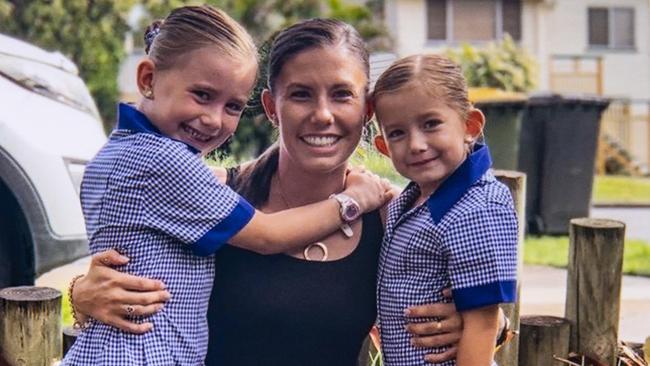
Their ultimate dream is to convince a property developer to work with them to create a refuge for women – an apartment block or group of townhouses.
In the past two years they’ve spearheaded the conversation around coercive control and campaigned for it to become criminalised.
They’ve been honoured as Queensland’s candidates for Australian of the Year and told their story again and again in the hope that it will prevent it happening to someone else.
“We couldn’t (fight for her) when she was alive. We can do it now,” Sue said.
“We didn’t want them to be forgotten,” Lloyd said.
“We wanted Hannah, Aaliyah, Laianah and Trey never to be forgotten. So we started the conversation. And we were lucky we had a lot of good support around us who steered us in the right direction.”
Part way into their journey they received a call from Attorney-General Shannon Fentiman. She told them they were starting a task force – the Women’s Safety and Justice Taskforce. It would be run by former Supreme Court Justice Margaret McMurdo. They’d meet with her too and shared their story.
The task force has since recommended the criminalisation of coercive control.
All they’ve achieved, they’ve done for Hannah. For sassy Aaliyah. Affectionate Laianah. And little Trey, just three years old.
“He was just a sweet little boy. He was Mummy’s boy, he really was,” Sue said.

He loved animals. Every trip to the shops would see him leaving with a little pack of animals – dinosaurs, jungle animals or farm animals. He would run too fast for his body.
“He could throw a football, kick a football. They all had their little niches,” Lloyd said.
“The other morning, I couldn’t sleep. I woke up at 3.30am and all I could think about … my mind was just going, how much further along would Aaliyah have been now? How Laianah would look. Whether she’s still Little Middle? Whether Trey had grown into his head. He had a big bobble head. He used to run down the hallway, his little legs going up and down.”
In those months, Hannah had talked about becoming a police officer. She’d taken the online test and done well. She’d spoken about wanting to help women in trouble, women fleeing abusive relationships – women like her.
“So that’s another reason that keeps us going with this too,” Sue said.

“We can’t be police but we can try to help other women like she wanted to.
“She was a strong person and it was hard to see her lose that strength. But it was coming back. After she left and finally had made that decision to go, just to see the strength come back in her was amazing.”
A Facebook memory popped up for Sue on Wednesday. It was a memory of a family trip to SeaWorld. Lloyd and Sue, Hannah and her children, their son Nat and his family. They’d had their Hannah back. A smiling, laughing, joking Hannah.
“We were so lucky. We really were. We were really lucky to have that day – to have the whole family together,” Sue said.
“And Aaliyah actually came to us that night and said ‘that was the best day of my life!’
“And when I saw that memory come up, I remembered that and I thought, ‘oh we didn’t know you only had four days left, hun’.”
Originally published as What would they have been like today? Remembering Hannah Clarke’s children



